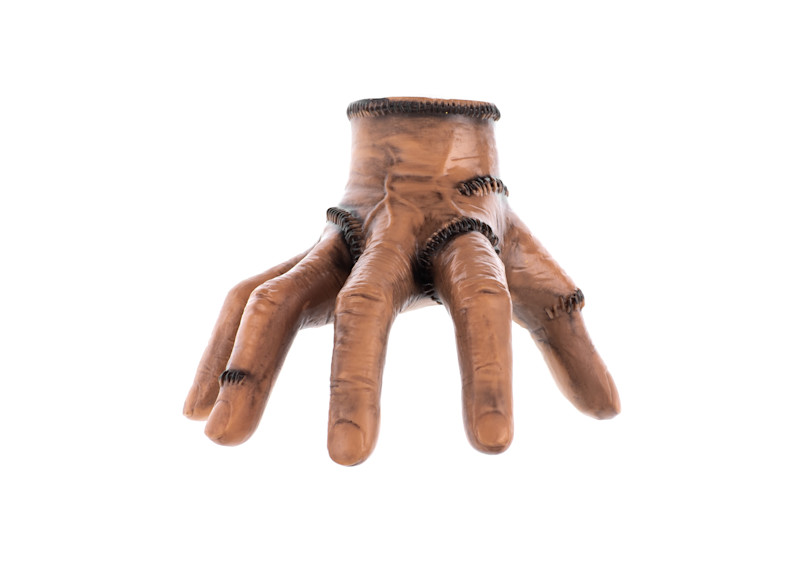“The cream always rises to the top.”
– Randy "Macho Man" Savage
1. Just in Time for Halloween!
It's like Thing from “The Addams Family” jumped out of fiction and into reality! A detached, crawling robotic hand is pretty much the sci-fi version of what Thing has always been – a helpful, albeit creepy, hand with a mind of its own. It's wild how close some of these new robotics are getting to the quirky stuff we used to only see in movies!!
2. Lockheed’s Rocket Lab
Lockheed Martin’s Missiles and Fire Control team opened an advanced manufacturing technology center in Grand Prairie, Texas, to boost manufacturing innovation. The center fosters collaboration between design and production teams, speeding up the implementation of new technologies. It supports automation, scalability, and workforce development, enhancing affordability and flexibility across operations.
3. Gridlocked: Additive in Industry
Energy company Baker Hughes is exploring additive manufacturing (AM) within a limited scope for product development, training, and supply chain resiliency. Despite producing qualified parts, they only address a small fraction of their total components due to AM’s high qualification costs and engineering demands. It seems that while AM clearly has potential, financial challenges are still a hindrance to its widespread adoption. The journey toward integrating AM into sustainable industrial processes remains ongoing.
4. The Founding Fathers of Modern AI
John J. Hopfield and Geoffrey E. Hinton have received the Nobel Prize in Physics for their pioneering work on artificial neural networks. Their research provided a foundation for modern artificial intelligence, allowing computers to learn in ways similar to the human brain. Hopfield’s associative memory model and Hinton’s development of neural networks have had a transformative impact on AI, influencing fields from physics to everyday digital services.
5. Pioneering 3D Printed Tissue
3D printed livers are still a bit further down the road (I know you were asking), but progress in tissue engineering is promising. While researchers like those at Boston University are advancing 3D printed tissues and developing functional cardiac models, printing complex organs like livers presents additional challenges, such as creating vascular systems to sustain the organ’s larger tissues. It’s a big leap, but with current breakthroughs, we’re moving closer to that reality.
To get the latest tech developments delivered directly to your inbox, subscribe to the weekly Tech Report here.
To access Tech Trends, log in to or register for an MTInsight account at https://www.mtinsight.org/






